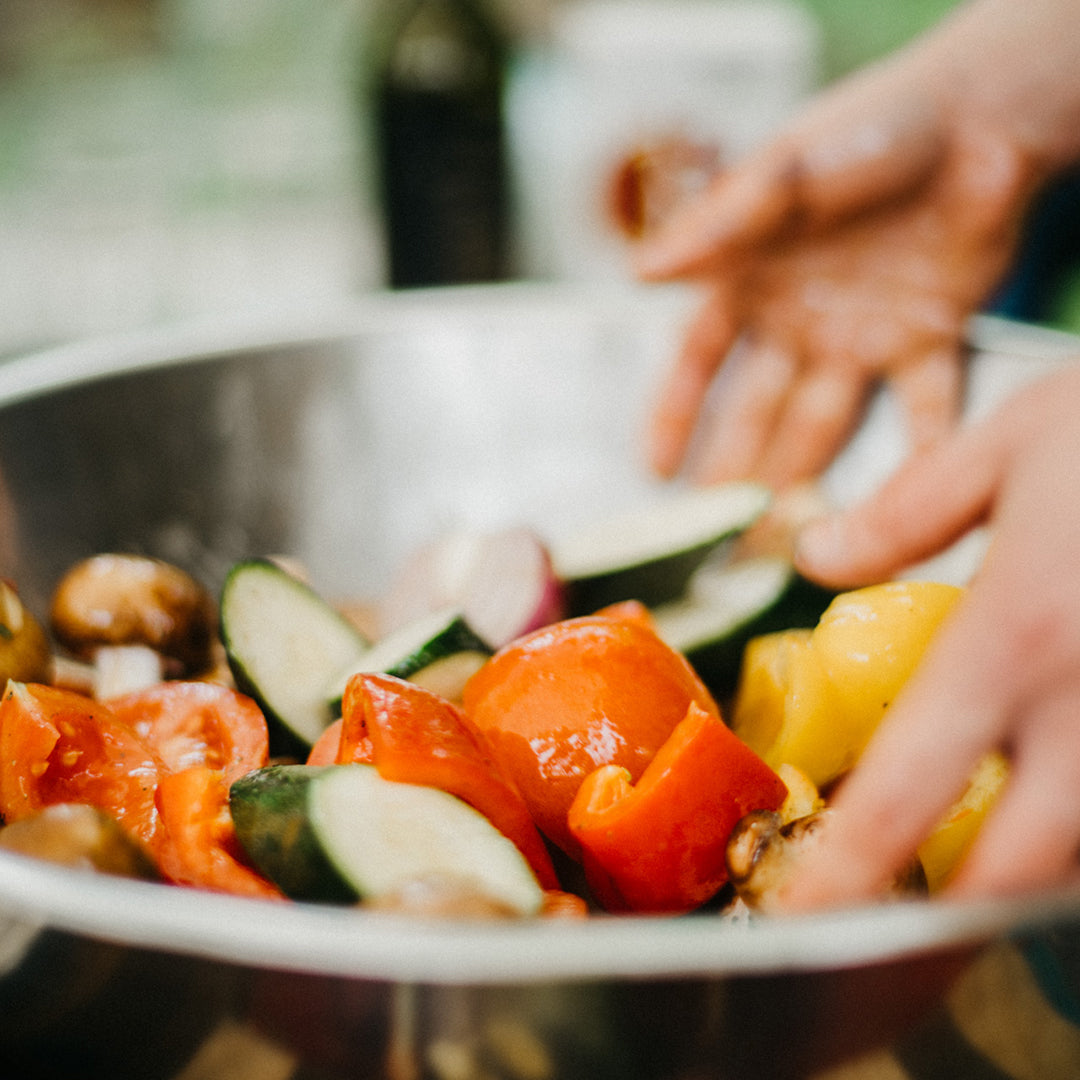
Tuning into our senses - sight, sound, smell, touch and taste...
I love to watch people prepare food and cook. In fact, I’ve always been rather mystified by the whole process. I’m talking about the everyday, unrehearsed meals where people depend on their senses to see a successful dish through. Sensory cooking. It is the antithesis of technique. It can’t be found in detailed cookbooks or manuals, nor cinematically captured in cooking shows, you sure as hell won’t find it on the internet and it’s definitely not in any classroom. Tuning into our senses - sight, sound, smell, touch and taste (or any combination of these that we may have) become our most valuable tools in our kitchen arsenal.

Now I must preface this by saying that I am not a chef. I’m a good cook with a relentless inability to remove myself from the kitchen. My mother can attest. My foundation in cooking comes from spending years at the kitchen counter, capturing my mom in a question trap about all sorts of topics and then letting osmosis work its wonders. Like most of human history, I learned cues related to my senses and food simply by being near the stove.

I discovered early on that recipes are inherently limited when it comes to sensory information. Distinguishing the sound between a simmer and a boil, knowing the moment caramelisation has been achieved through the aroma that fills the room, picking up on the visual cues a sunny side yolk is still runny and done, pinching a piece of rice as it boils and straining it just in time before the sugars turn it in to glug, biting in to pasta as it cooks to catch that brief moment between chewy and soft, knowing the feel of a rare steak versus a medium steak by poking it with your finger and the list goes on. This is sensory cooking. We all have some sort of experience with it if we’ve stepped into a kitchen. It comes from doing. Putting down our guard, not giving a fuck about making mistakes and switching from trying to nail the recipe to listening to our senses. It is slight, nuanced, requires a full body approach and a good sense of humour to be able to laugh at yourself when you serve up garbage. Benchmarks are important.

Our sensory engagement with food is a rather interesting topic that changes based on several different social, cultural, economic, personal and yes, political facets of our lives. There are all sorts of things at play from the second we purchase our food and how our senses engage with the ingredients, to their preparation, cooking and finally eating process. The modern world has us convinced that we don’t have time, and when we believe we don’t have time, we don’t allow our senses to engage fully. This starts right at the very first step: buying our groceries. Whether you’re doing this for a restaurant or your family. It can begin by smelling and feeling the ripeness of fruits and vegetables, sifting flour through your fingers to determine its structure potential, and looking for how much marbling is on a cut of meat to determine how best to cook it. Sensory engagement in the ingredient selection process facilitates a strong foundation for any meal.
This approach can trickle down into our food preparation and processing methods as well. Too often mechanization of processes in the kitchen, both commercial and domestic, come at the expense of sensory engagement to help maximize efficiency and save time. However, the more we practice, the quicker we become as our senses become more astute. There is no utensil or appliance that can replace the information our senses can send to our brains. After all, we’ve been doing this for a long time.

There are pockets within cultures around the globe that are tapping into this history and elevating sensory cooking within their respective scenes. We see it in the slow food movement, hand made, small batch food products, restaurants setting up open concept kitchens where guests can watch the cooks and chefs use their razor-sharp senses to create right in front of them, and education systems teaching kids how to grow and cook their own food. It is a thing. A wonderful thing that I have only barely scratched the surface of while writing this. I am, however, convinced that now more than ever, there is no space where sensory cooking deserves more attention and energy than our own kitchens. Experimenting, having a play with friends and family, and turning off all other distractions and letting ourselves be completely immersed in the moment. This is where the real magic happens and it’s a bonus when you end up with something tasty at the end.

